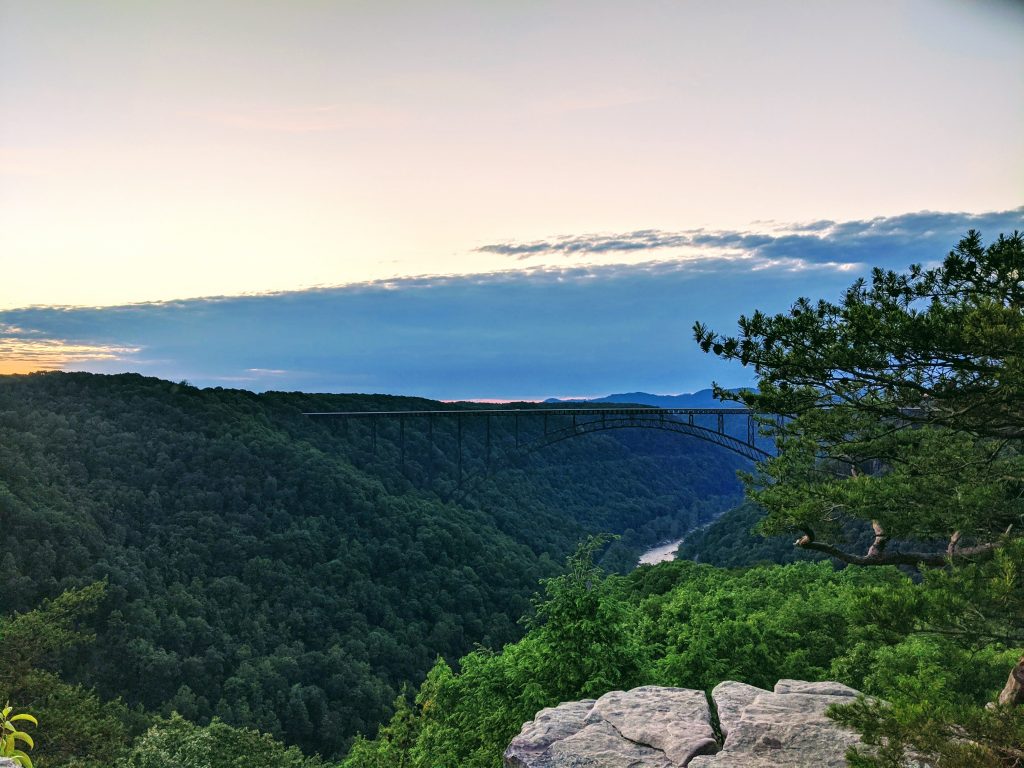
Some are declaring “the office is dead” and many think that employers will be more flexible after the coronavirus passes. Many people who left cities for a rural refuge in Appalachia are right for heading here: costs are low, community ties are strong, and space is plentiful.
Rural communities have a chance to show their appeal by flaunting greener pastures and strong local communities. Efforts in southeast Ohio, for example, have highlighted the caring nature and strong ties of the community. A researcher studying movement to a small town found:
Those benefits included the quality of life they experience in their rural communities, including family-centered environments, low cost of living, unconditional support provided by community members, intergenerational friendships, increased sociability and unique opportunities for personal and professional growth available for young adults in rural communities.
A younger population could be the economic and social injection that Appalachian communities need. Some rural towns were already doing so long before coronavirus. A population influx could renew the hustle and bustle of shuttered, lonely downtowns.

Many rural areas, like Princeton, West Virginia, have organizations such as the Riff Raff Arts Collective which are livening up downtown with music, arts, and other cultural programming. The group has focused on changing the narrative around Princeton and the state of West Virginia. In face of crisis, they still are the glue of the community bringing hope and art to the community.

Southern West Virginia is home to a plethora of parks and natural wonders. This stunning, mountainous landscape has already created a tourism economy near the New River Gorge National River and the Gauley River. This created opportunity for locals and tourists alike. Near Fayetteville,WV small businesses like Freefolk Brewery and Arrowhead Bike Farm are taking off. New races and events for outdoor sports like the Rim to River 100, an endurance trail run, are bubbling up from the expansive networks of rivers and trails. This area of West Virginia is a playground for folks interested in or passionate about mountain biking, trail running, hiking, whitewater kayaking, relaxing lake days, and more.

And for many expatalachians (folks who left the region), the homeward pull is strong as many left for economic opportunities, not aversion to the area. Remote work may pull those people back into the rural fold.
One passionate West Virginian, G. Hampton Cokeley, recently moved back to West Virginia for good from Austin, Texas. He writes, “West Virginia has an opportunity to bring her sons and daughters home. We have funded the workforces of Charlotte, D.C., Pittsburgh, New York City, and Austin for too long. I know that many West Virginians like me want the opportunity to live and work in The Mountain State.”
Companies forced to move to remote work might now see the value in it and the benefits of rural areas.
It may be unrealistic to expect New Yorkers to give up the crowded city for a rural home. However, Appalachia has many urban gems in or near it. Many cities such as Asheville, Pittsburgh, Columbus, and Roanoke have been suggested as destinations for young workers interested in urban-ish living.

Often dubbed the Paris of Appalachia, Pittsburgh is an attractive place for young people in search of opportunity and community. It’s large enough to be a city and small enough to feel like you are connected to your neighborhood. Pittsburgh is home to many colleges such as the University of Pittsburgh, Carnegie Mellon University, and Chatham University. Its libraries, remnants of Andrew Carnegie’s legacy, are expansive. It has a thriving arts, and food scene. And the cost of living in Pittsburgh is 60 percent lower than New York City.
COVID-19 won’t be the only reason for internal migration in the United States, either. With continuing Sea Level Rise, more residents of coastal cities might consider small cities or rural areas. In recent years, the first wave of climate refugees from Southern cities have relocated to inland cities, including in Appalachia. Sea Level Rise (SLR) has already contributed to migration from Southern coastal areas in Florida, Georgia, South Carolina, and Virginia. One estimate concluded that 13 million people could be at risk of migrating.
There is an obvious opportunity to attract young people to a region that struggles to keep natives home. Like in international development, policymakers and communities struggle with brain drain and an aging population. Some local projects like the Stay Project help cultivate community and home for young people. The Stay Project has done great work to support minorities, LGBTQ, and young people which also can lead to greater regional pride and perhaps a commitment to stay.
West Virginia’s population has steadily declined for the past 5 years and its new census reports will cause the state to lose an electoral college vote. The coronavirus crisis has created many chances as well as pitfalls. It has made people look to local food systems, brought some families together, and made rural living alluring to city folks. Policymakers and community members in Appalachia would be wise to consider how their community can simultaneously discourage current travel while encouraging a remote workforce to join them in the future.
Subscribe to The Patch, our newsletter, to stay up-to-date with new expatalachians articles and news from around Appalachia.
Alena Klimas is a writer and cofounder of expatalachians. She also manages the weekly newsletter, The Patch. Klimas is based in Asheville, NC where she works on regional and community development projects with a small consulting firm. She enjoys the vibrant outdoors and beer culture in her new home.

